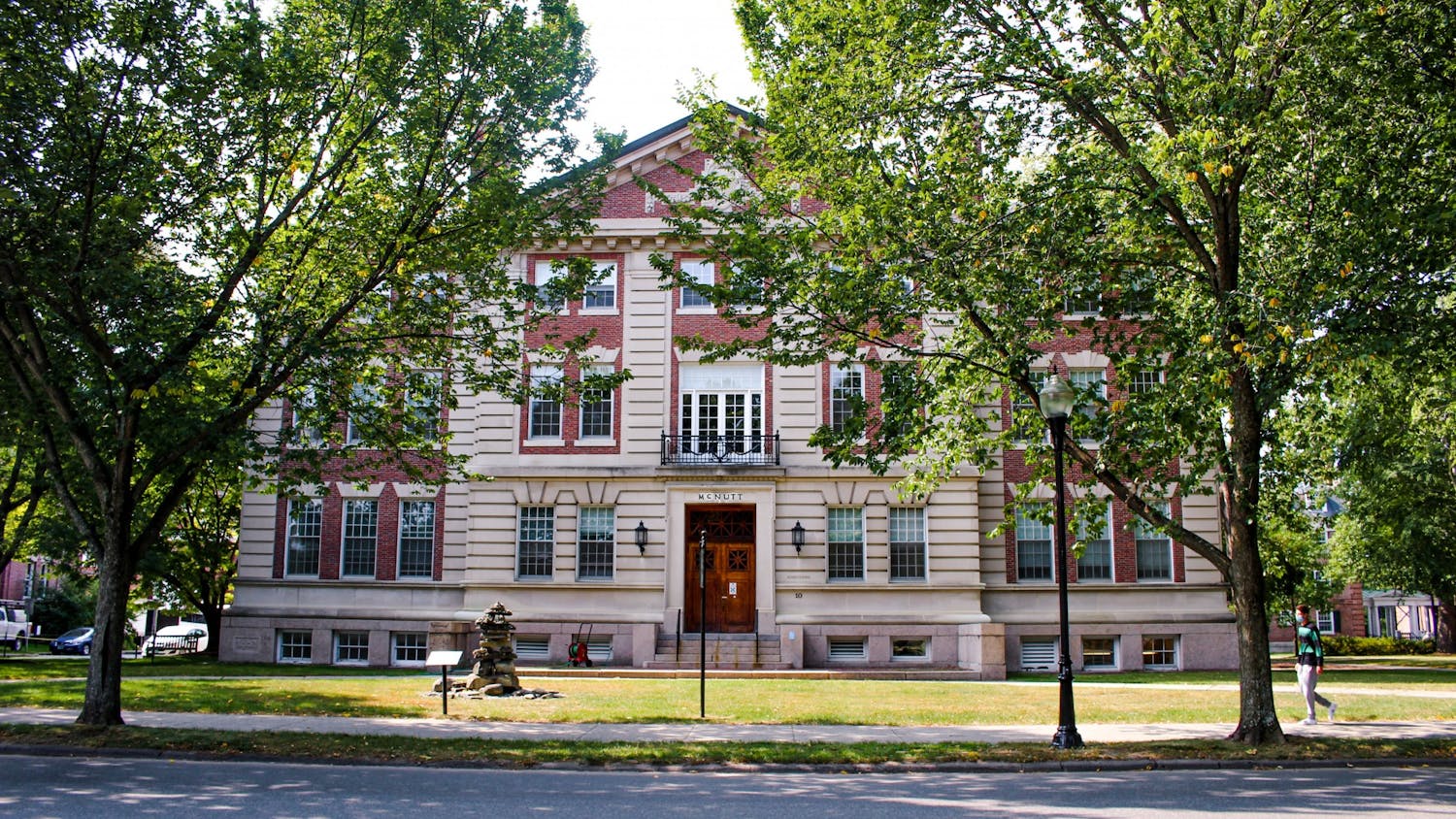National news stories sometimes go unnoticed by students sheltered under the Dartmouth bubble, but the tragic events of September 11 sent shock waves into every nook and cranny of the nation -- even the wilderness of New Hampshire.
However, many members of the Class of 2005 learned of the events on that day in an unusual manner. The Dartmouth Outing Club was in the midst of its hectic freshmen trips when the planes hit New York, Washington D.C. and Pennsylvania. With some freshmen literally in the wilderness, the news took a little longer to reach these freshmen.
One group first learned of the tragedy from a man who looked like a through hiker, with a long beard and wearing dirty flannel.
"He ran up yelling 'Terrorists are attacking us!'" Will Fang '05 said. "Everyone thought he was crazy. It turned out it was true."
Fang, on a different trip, heard the story about this "crazy mountain man" through friends. The same feelings of disbelief, however, marked the way he learned of the tragedy.
Instead of kayaking on that day, Fang was waiting with his group was waiting for the bus that would escort them to Moosilauke Ravine Lodge. However, someone else was sent to inform the group of the terrorist attacks.
"He sat us in a circle and told us something terrible had happened," Fang said. "We had gotten raided a couple of times already at that point, so we thought, oh this has got to be a joke. The World Trade center, that's funny. Then he started crying, and we were like, 'holy shit.'"
When the bus to Moosilauke did finally come, Fang said his group tried to listen to the radio to learn more details.
"We were driving through Godknows- where northern New Hampshire, picking up random five second clips of what was going on," Fang said. Through the static he said his group heard snippets like "Osama bin Laden," and "United."
"I remember thinking at that point how lucky I was going to school somewhere like Dartmouth, where it's really safe," Fang said. "It was really reassuring. It feels weird saying that now, it's sounds so selfish."
Katherine Heyman '05, who had already finished her DOC trip and returned to her home in New York City, shared Fang's sentiments.
"I guess I was happy to be able to leave New York to come to a safe place," Heyman said. "But it was a little bit uncomfortable leaving all of my family in New York."
Students still on DOC trips also worried about friends and family members, and many cut their trips short to return home.
"All we knew was that two planes had crashed into the World Trade Center, and we didn't really know much else," Haley Peckett '05 said. "I have an uncle who lives in New York and I didn't know if he was in danger."
The College called family members of students on their DOC trips to tell them their children were safe, and most groups hiked to civilization where the trip members could call home themselves.
While some students hurried to leave Dartmouth and go home, a few New York students had the opposite problem. For Tommy Cheung, being able to leave New York in time to attend school posed a considerable challenge.
"We were put in a lockdown for security reasons; our neighborhood was shut down," Cheung said. "I was scared that I wasn't going to be able to make it back to Dartmouth. I was just devastated. Cars weren't allowed to leave the neighborhood or come in."
The attacks on America launched the Class of 2005 into their college careers amidst high emotions and a politically charged atmosphere. For some, that atmosphere would impact the way the rest of their four years played out.
"It made me aware of global politics, of America's position in the world," former College Republicans President Jesse Roisin '05 said. "It made everyone aware of the situation. It struck us and we had to think about these things."
Fang concurred.
"It was definitely one of those experiences that define the rest of your Dartmouth experience," Fang said.
During their four years, the '05s would see the unfolding of President George W. Bush's War on Terror, including the invasion of Iraq and the bloody violence that continued even after Bush declared the war over.
But perhaps because of the initial bonding in the class over the Sept. 11 tragedy, political tensions between students never rose as high as they might have.
Roisin said he feels campus dialogue between students with different political views has greatly expanded during his time at Dartmouth. He said that there wasn't much political dialogue when he first arrived, just "people in their own corners with their own beliefs."
"Since then we've seen a lot of things broadening up, opening up dialogue between the two political camps," Roisin said. "That's a big improvement. We have a lot more in common than we have that divides us."



